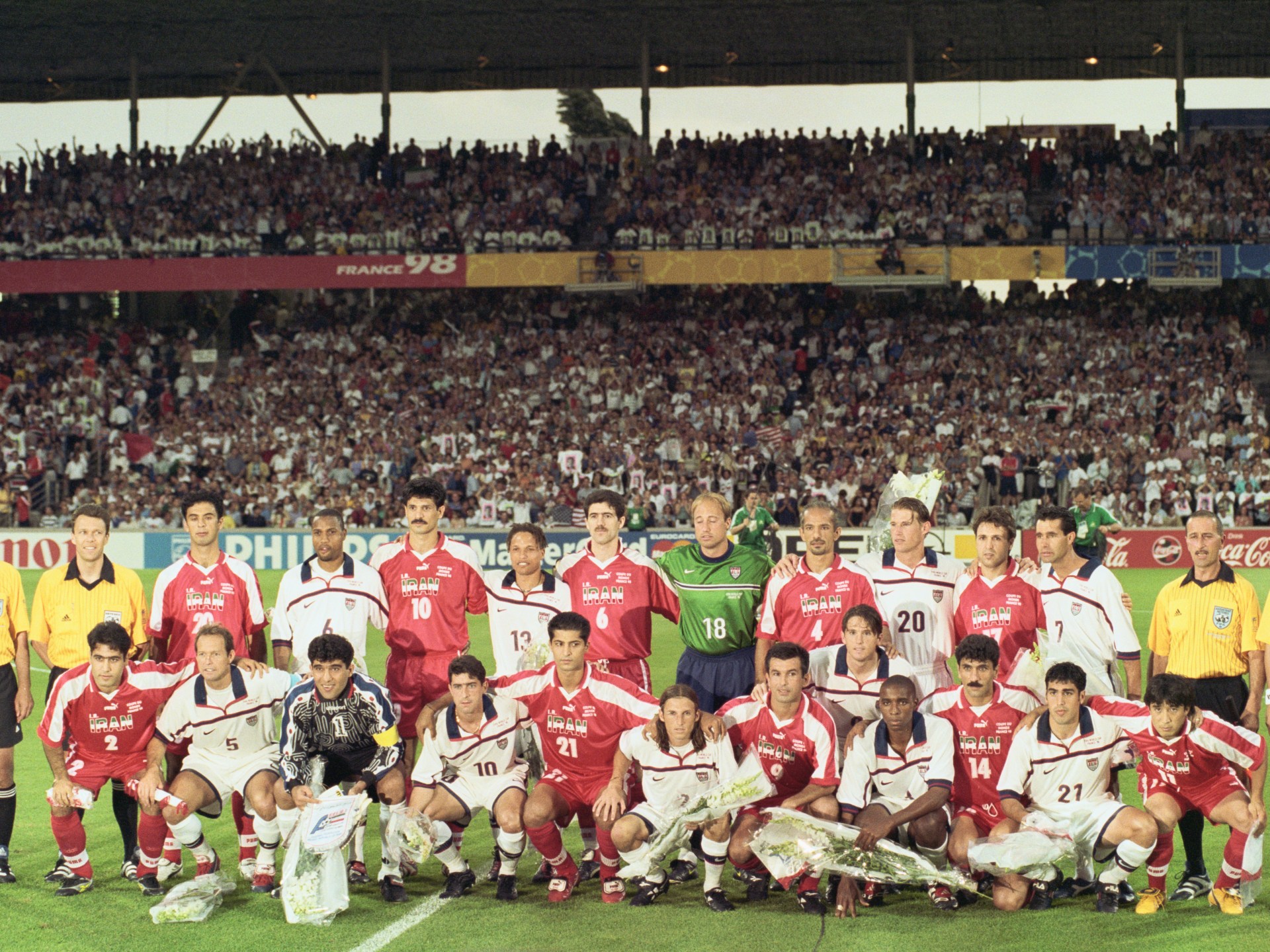The upcoming match between Iran and the United States today – as part of the Qatar 2022 World Cup – brought back memories of the 1998 World Cup with scenes of mutual respect between the players of these two countries, separated by politics and brought together by football stadiums .
The confrontation, which will be hosted by the Al-Thumama stadium, will be another scene of the presence of politics in the field of sport during the World Cup.
1938: Italy-France
In a very tense geopolitical context, and in the light of the outbreak that has engulfed Europe, France hosted the third edition of the World Cup, and on 12 June France faced Italy in the quarter-finals at the Stade Colombes (the Italy won 3-1).
The Italians wore a black shirt similar to that of the militias of Mussolini’s regime, and gave a Fascist salute to 60,000 spectators, and the audience at the time responded with boos during the Italian anthem.
Football, according to Mussolini, was a way to show the superiority of fascist ideology, and the Italy national team went far in the competition at the time, eventually winning its historic second consecutive title.
1974: The two Germans meet
On June 22, 1974, the enemy brothers of West and East Germany faced each other in Hamburg (West) at the stadium “Volkspark”, packed with fans.
In the midst of the Cold War, that game embodied the tension between the two sides, and the confrontation – classified in the danger group – ended without a hitch, and East Germany triumphed against all odds with a goal from Jürgen Sbarwasser in the last quarter of ‘now, and remained in the memory forever.
But despite this, West Germany remained in the competition and won the competition they hosted, achieving their second World Cup title.
1986: Argentina-England
On June 22, 1986, Argentina and England met in the quarterfinals of the World Cup in Mexico, 4 years after the Falkland Islands War, which claimed the lives of 649 Argentines and 255 Britons.
The atmosphere was very tense between the two elected countries, whose countries severed diplomatic relations in 1982.
At every match in the competition, Argentine supporters held banners reading “The Falkland Islands are Argentine” and sang patriotic songs calling for “kill the English”.
Clashes broke out between fans of the two teams on the sidelines of the quarter-finals. As a result, dozens of injuries ranged from minor to serious.
Argentina won the match, thanks largely to the genius of Diego Maradona, who scored two legendary goals; “Hand of God” and then “Goal of the Century”.
The late Argentine legend later admitted: “It was a final game for us. It wasn’t about winning a game, it was about eliminating the English.”
1998: Iran-United States
During its second participation in the World Cup, Iran found itself in 1998 in the group of its “sworn enemy”; united state.
Diplomatic relations between the two countries were severed by the taking of hostages at the US embassy in Tehran in the aftermath of the Islamic revolution of 1979.
The match in Lyon, France on June 21 was a chance to calm down: after the national anthems were played, the American players shook hands with their opponents and gave them souvenirs. The Iranians responded with bouquets of white roses, before the two teams took a group photo.
The Iranians won the match at that time (2-1), recording their first World Cup victory.
2018: Switzerland – Serbia
On 22 June 2018 in Kaliningrad, Russia, Serbia faced Switzerland, which counts many players of Kosovar origin among its ranks.
Kosovo is a former province of Serbia inhabited mainly by Albanians. After 10 years of conflict, which was the last war that led to the implosion of the former Yugoslavia, Kosovo declared its independence in 2008, not recognized by Serbia, to exacerbate relations between Belgrade and Pristina.
Granit Xhaka, born in Switzerland to a Kosovar family, and Jerdan Shaqiri, born in Kosovo, scored two goals; Give Switzerland a 2-1 win over Serbia.
The two footballers celebrated their goals by heading towards the Serbian fans, placing their hands on their chests in the opposite way, drawing the black “double eagle”, symbol of Albania, in the center of its red flag, which aroused the indignation of the press Serbian, which denounced a “shameful provocation”.
FIFA subsequently fined the two players €8,660 each.


